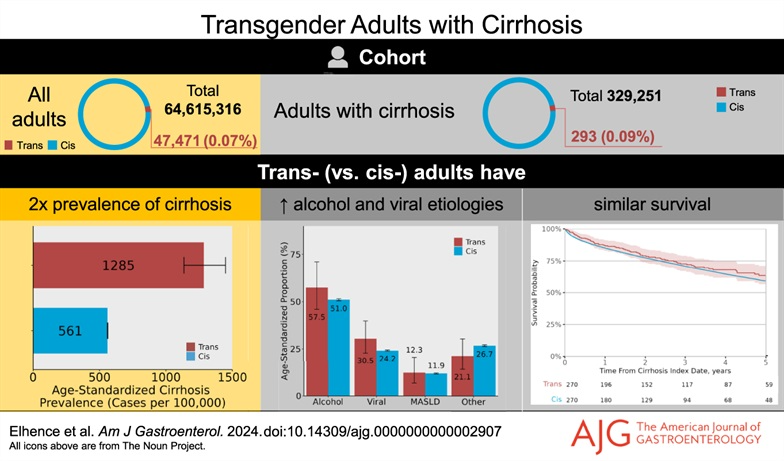The authors used the Optum Clinformatics Data Mart Database (Optum), that contained medical claims for more than 60 million patients covered by commercial insurance or Medicare between the years of 2007-2022. They first identified all transgender and cisgender adults, and then compared the incidences of cirrhosis among each group as well as causes of the disease. Additionally, researchers tracked depression and anxiety in patients.
Cirrhosis is overwhelmingly a lifestyle disease, brought on by abuse of alcohol and behaviors that lead to hepatitis, and that is leading to calls for more intervention before it gets to progressive end-stage liver disease.

Besides discovering that transgender cirrhosis rates are double that of the cisgender population, the analysis found that transgender patients with cirrhosis tended to be younger (under age 45), had higher rates of viral hepatitis and were 500% more likely to have HIV/AIDS than their cisgender people. Alcohol was the leading cause of cirrhosis in the transgender group, 60% of cases, while cisgender adults were approximately 50%.
Compared to 40% of cisgender patients with cirrhosis, 60% of transgender adults with cirrhosis have a diagnosis of anxiety and/or depression.




Comments